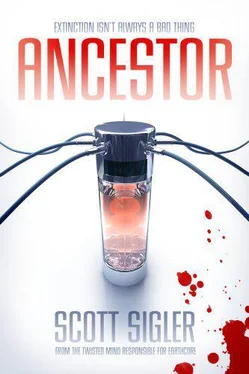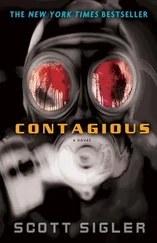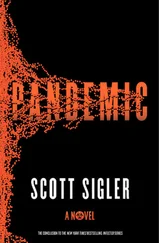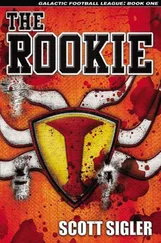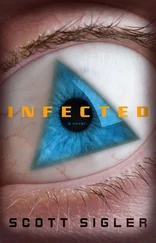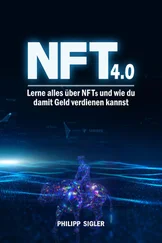He picked up a remote control and hit a button, turning on the large flat-panel monitor mounted on the wall. The screen displayed a chart with a rising, jagged red line.
“The red line represents the growing number of people in the United States with terminal illnesses who are waiting for an organ transplant. Over a hundred thousand right now, up from eighty thousand just five years ago, which was up from fifty-three thousand a decade ago. A new name is added to the list every ten minutes. Only about fifteen thousand organs will become available this year, roughly fifty-five percent from deceased donors, the rest from living donors. In the United States, the average wait for a kidney is over fourteen months. The discrepancy between those needing an organ and available organs increases by about twelve percent each year. Roughly fourteen thousand Americans will die, this year , while waiting for an organ that will never arrive.
“Those numbers are just the United States. Worldwide, some estimates range as high as 750,000 people who need a kidney transplant. That doesn’t take into account the need for hearts, lungs and livers.
“Genada estimates the average fee for a replacement organ will be around fifty thousand dollars. That means an annual market of over thirty-seven billion . And that is the current market. With improving living conditions and medical care in India, China, and elsewhere in the developing world, we expect the number of people needing an organ transplant to double in the next ten years. Do I have your attention thus far?”
The five investors’ heads nodded in unison.
“Several companies are trying to solve this shortfall by a process known as xenotransplantation—transplanting the organs or tissues of one species into another.”
“Animal parts,” said a small man with thick glasses and a mop haircut. He was one of the American software magnates, and by some standards, the richest man on Earth. “Baboon hearts, pig livers and the like.”
Danté nodded and smiled. “With current technology, a xenotransplant can keep someone alive for a few days, weeks at most, and only then if the patient stays in a hospital the whole time. The human immune system, you see, usually attacks the organ. Defeating that immune response is the goal of most companies, but solving that issue leads to a larger, far more significant hazard.
“Xenotransplantation opens up the possibility of a virus jumping species. When you introduce a foreign organ into a human body, you also introduce any viruses that are in that organ. Normally, these viruses die quickly, as they aren’t designed to attack a human host. But if those viruses adapt to infect human cells, we can get an infection against which humans have no natural antibodies.”
“The H1N1 virus,” the shipping magnate said. “Swine flu, SARS, bird flu. Those are species-jumping viruses.”
“Or like what just happened in Greenland,” said the lone woman. “This doesn’t sound like a valid investment to me. It sounds like a way to kill millions.”
The comment caught Danté by surprise. The four men looked at the woman—they obviously hadn’t heard about Greenland, but their confidence slipped nonetheless. Apparently Genada wasn’t the only company with contacts in high places. Danté briefly wondered if Farm Girl might be selling the same information to other parties.
“Genada has the solution,” he said. “We are perhaps the only valid investment in this area, because our process eliminates any possibility of a virus jumping from the donor species to humans.”
He clicked a button on the remote. The picture showed a small creature perched on a rotting log, surrounded by exotic vegetation of some long-gone jungle. The creature had somewhat of a teardrop shape—thick in the middle, narrowing to thin hips and ending in a short, pointed tail. The rear legs stuck out at forty-five-degree angles from those slight hips, resulting in knees and feet farther away from the body than those of a cat or a dog. The front legs also jutted away from the body, but at less of an angle. A sparse layer of silvery fur covered the lithe little body. Although it showed some characteristics of a modern animal, particularly the long whiskers protruding from its pointy nose, it looked unmistakably primitive.
“This is a Thrinaxodon, which lived some two hundred million years ago. It’s a member of a group of animals known as Synapsids, also called proto-mammals. Something like the Thrinaxodon gave rise to all mammals. That something is the ancestor of you, me, dogs, dolphins, every mammal species. That ancestor, my friends, is what Genada is re-creating, and it’s going to make all of you a great deal of money.”
The mop-haired man stood up, a big smile on his face, his eyes alight with excitement. “So let me get this straight—you’re creating this ancestor creature so you can put its organs into people and save lives, and at the same time, eliminate the possibility of these dangerous viruses?”
Danté nodded. “We will create an animal similar to the mammalian ancestor. Since the ancestor would be engineered from the DNA up, we can ensure the resulting animal will not carry any naturally occurring viruses that could adapt to infect people.
“Cataloging and working with this computerized biological data is a science called bioinformatics . The Human Genome Project and Celera Genomics sequenced the entire human genetic code, right down to every last nucleotide, but humans were only the start. Scientists have sequenced thousands of mammals, storing the digital analysis in public databases like Gen-Bank. These genomes, combined with animals we sequenced ourselves, give Genada the complete genetic code of almost every mammal on the planet.”
“I do not understand,” the shipping magnate said. “You have genomes of modern animals, but not of this ancestor?”
“Genetic mutation is the basis of evolution,” Danté said. “But not all genes mutate at the same rate. As species branch out from a common ancestor, some genes mutate faster, some don’t mutate at all. By using a molecular clock , so to speak, we can gauge which sequences have changed, and by comparing that gene to the same gene of another mammal, we can tell which sequence is older, closer to the original ancestor’s genetic code.”
The woman smiled. “I’ll be damned. That’s such a simple concept, just use the lowest common denominator. You take out everything that’s unique , and you’ll be left with everything that’s common.”
Danté nodded. They were getting it. The woman was the toughest sell. The software mogul was in, Danté could see that as plain as day, but if the woman invested the last three would follow.
“Our staff created an evolution lab inside the computer,” Danté said. “This program statistically analyzes genomes based on the probable function of each gene sequence. The computer works with our digitized ancestor genome, predicting final form and function, then makes changes, predicts again, and measures probability for desired traits. It’s just like evolution, only in reverse and a million times faster than nature. We create the creature in the computer, one nucleotide at a time. Since it is created from scratch, we know— for certain— that it’s free of any viral contamination.”
The Chinese man spoke. “But that animal on the screen, it is too small. You could not put its heart in me.”
“Correct,” Danté said. “But that animal on the screen was created only in silica , only on the computer, to give us a baseline. We’ve already done that. From there, the computer added specific virtual genes coding for size and human organ compatibility. Our first living generation won’t be perfect, but we can analyze the phenotype— the size of the animal and what it looks like—against the genotype— the actual DNA coding. Once we have that, we keep modifying the genome until the animal’s organs are ideally suited for human transplantation.”
Читать дальше
